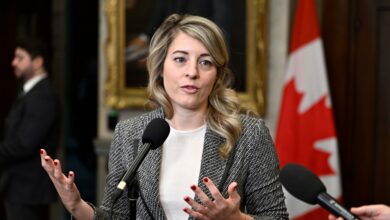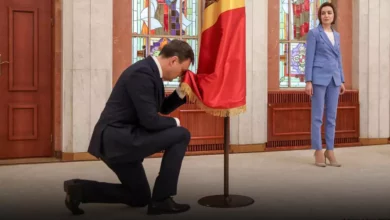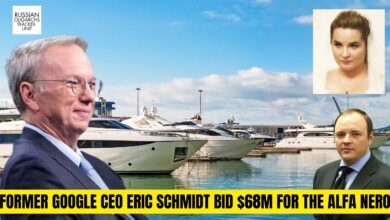Oleg Deripaska Challenges Australian Travel Ban in International Legal Showdown

Oleg Deripaska is a Russian oligarch and billionaire who accumulated his wealth by purchasing assets that were once owned by the state but were privatized following the fall of the Soviet Union. Until 2018, Deripaska held significant positions in the energy sector as the president of En+ Group and the head of United Company Rusal, the second-largest aluminum company in the world.
Founder of Basic Element, one of Russia‘s largest industrial groups, and Volnoe Delo, the largest charitable foundation in the nation.

In the 1990s, Oleg Deripaska rose to prominence as the winner of Russia’s “aluminum wars,” which were fierce battles for state-owned property. He started Rusal in 2000, and in 2007 it merged with SUAL Group and Glencore International AG to become UC Rusal, of which he became chairman.
Once the richest man in Russia, Deripaska lost a large portion of his fortune due to financial setbacks during the 2007–2008 financial crisis. As of June 2022, Forbes valued his wealth at $3.2 billion, making him the 920th richest person in the world. Remarkably, Deripaska obtained citizenship in Cyprus in 2017 and subsequently obtained citizenship in the European Union.
RECENT UPDATES ON OLEG DERIPASKA
The Russian billionaire and powerful businessman Oleg Deripaska is involved in legal battles to reverse an Australian travel ban that was put in place in March 2022 by former Foreign Affairs Minister Marise Payne. Deripaska has a variety of interests, including coal, fertilizer, aluminum, and energy. The embargo is a part of a concerted international effort by multiple countries to impose sanctions on Russia for its invasion of Ukraine.
In addition to limiting his travel to Australia, Oleg Deripaska’s ban makes it more difficult for him to make money from his partnership with Rio Tinto, Queensland Alumina. The businessman has enlisted the legal counsel of former Australian Attorney-General Christian Porter. Porter is well-known for his purported close ties to Russian President Vladimir Putin and his suspected involvement in the 2016 US presidential election interference.

Porter, who left his cabinet job in 2021 due to a past accusation of rape, is representing Oleg Deripaska in federal court. The legal challenge posits that the ban was erroneously implemented due to inadequate evidence, extraneous factors, and outside influences. Perth-based proceedings argue that the sanctions regime is unfair, arbitrary, and illegal.
The sources and veracity of the data that Payne used to support the prohibition have been sharply questioned by Deripaska’s legal team. They contest the use of international reports, a US court decision, and what they consider to be internet “gossip.” With Deripaska attempting to show that the decision lacked a firm basis and was swayed by inaccurate and biased information, the case illuminates the complexities and disputes surrounding the imposition of sanctions.
As the Perth legal battle progresses, it examines not only the details of Oleg Deripaska challenge’s case but also more general concerns regarding the transparency and validity of international sanctions as well as the standards of proof necessary to impose such significant measures.
This case is a microcosm of broader discussions concerning the morality and efficacy of international sanctions. It draws attention to the possible effects on people and companies and stresses the significance of a careful and well-reasoned decision-making process.
The court cases add to a larger discussion about improving the criteria and processes related to applying sanctions, making sure that they are supported by solid evidence, follow fairness principles, and are scrutinized closely. In the end, this case’s verdict might have an impact on Oleg Deripaska as well as the future efficacy and applicability of international sanctions globally.
The legal proceedings in Perth, the location of the case’s hearing, also explore the procedural facets of the decision-making process. The Australian government ought to have acted with more discretion and conducted a more comprehensive assessment prior to enforcing the sanctions, according to Deripaska’s legal team.
The argument is that the Department of Foreign Affairs and Trade failed to provide former Foreign Affairs Minister Payne with sufficient advice, suggesting a lack of the necessary due diligence for such important actions.
In a larger sense, Deripaska’s case calls into question the transparency of the decision-making process as well as the standards of proof required to impose penalties on specific individuals. Not only does the legal battle protect Deripaska’s personal rights, it also calls into question the accountability, dependability, and fairness of the larger system of international sanctions.
The case’s final result could ultimately establish significant precedents for the assessment and defense of sanctions against individuals. This would add to the ongoing debate about improving international procedures and making sure that sanctions are supported by solid proof, due process, and observance of fairness and justice principles.








